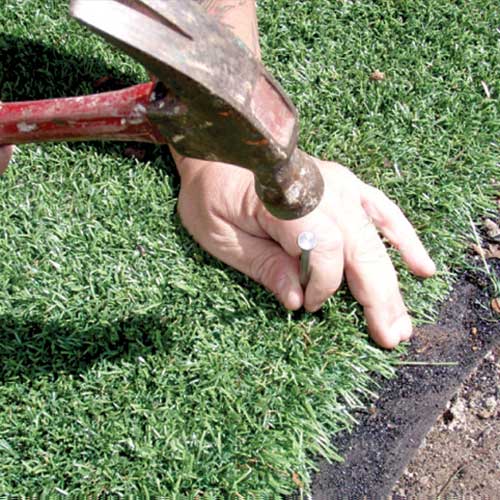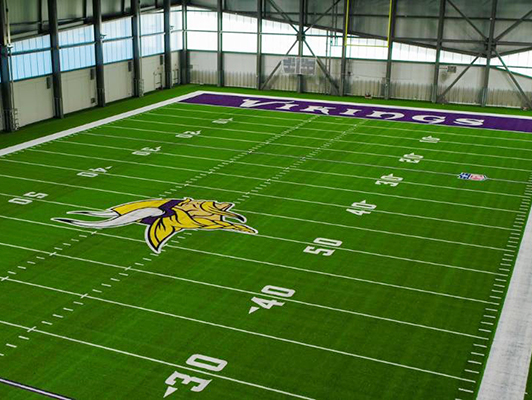Explore the Environmental Advantages of Opting for Artificial Lawn Solutions
The adoption of artificial grass remedies provides an engaging opportunity to resolve pressing ecological challenges. By dramatically lowering water use and lessening the application of unsafe chemicals, these choices not just promote sustainable landscaping however likewise shield regional ecological communities.
Water Preservation Advantages
One of the most substantial benefits of synthetic turf is its capacity to preserve water. In comparison, artificial grass does not need watering, significantly minimizing the overall need for water resources.
By eliminating the need for normal watering, man-made grass adds to lasting landscape techniques and assists minimize the environmental influence of excessive water consumption. The preservation of water extends to the reduction of runoff, which can lead to soil erosion and waterway pollution.
Additionally, the installment of synthetic turf permits home owners and communities to designate water sources much more successfully, concentrating on crucial uses such as alcohol consumption water and farming. The shift in the direction of fabricated grass not only advertises responsible water use but likewise lines up with broader ecological goals targeted at maintaining natural deposits.
As communities increasingly focus on sustainability, the water conservation benefits of artificial turf present an engaging case for its fostering in property and commercial landscape design projects.
Minimized Chemical Use
The change to synthetic grass substantially lowers the dependence on chemical treatments commonly used in all-natural yard upkeep. Typical lawn management typically includes the application of pesticides, plant foods, and herbicides to promote growth and control bugs. These chemicals can pose risks to human health, neighborhood wild animals, and the atmosphere, contributing to soil and water contamination.
In contrast, artificial turf removes the need for these dangerous compounds. By decreasing the release of synthetic compounds into the community, man-made grass advertises much healthier soil and water systems.
In addition, the absence of chemical runoff connected with artificial lawn setups aids shield regional rivers from air pollution, sustaining marine life and keeping biodiversity. Arizona turf. As neighborhoods progressively focus on lasting practices, choosing fabricated grass presents a practical remedy that lines up with ecological preservation goals. Through this shift, home proprietors can appreciate lavish environment-friendly areas without compromising eco-friendly health and wellness, leading the way for an extra lasting future
Lower Carbon Footprint

In addition, the setup of synthetic grass can result in considerable water preservation. All-natural lawns require significant amounts of water for watering, which not just see post includes in the carbon footprint related to water removal and therapy however also stress neighborhood water resources. On the other hand, artificial grass needs very little maintenance, calling for no watering, thereby dramatically lowering water usage and its linked energy costs.
Additionally, the longevity of man-made grass i loved this adds to its decreased carbon impact. With a life-span of up to 15 years or more, the need for frequent substitutes is decreased, causing much less waste and lower power intake in manufacturing and disposing of conventional grass options. Generally, synthetic grass provides a lasting option for ecologically mindful landscape design.
Environment Preservation
Habitat preservation is a crucial consideration in the dispute over landscaping options, particularly when contrasting man-made grass to natural grass. All-natural grass yards typically need comprehensive maintenance, including making use of herbicides, chemicals, and plant foods, which can negatively influence neighborhood ecological communities. These chemicals can leach into the dirt and waterways, damaging indigenous vegetation and fauna and interfering with neighborhood habitats.
In comparison, synthetic grass provides a possibility to minimize the ecological footprint of landscaping. By going with artificial turf, home owners can decrease the disruption of natural environments connected with traditional lawn treatment methods. Man-made grass removes the need for damaging chemicals, thereby safeguarding nearby wildlife and maintaining the honesty of surrounding communities. Moreover, the installation of synthetic grass can cause the conversion of previous lawn locations right into even more biodiverse landscapes, such as pollinator yards or native plant locations, which can sustain regional wild animals.
Eventually, the change to synthetic grass not just preserves water and lowers maintenance efforts however also cultivates a more unified partnership in between human tasks and the natural surroundings, promoting environment preservation at the same time.
Long-Term Sustainability
Long-lasting sustainability is an essential consider reviewing the advantages of synthetic grass over conventional lawn lawns. Among the most considerable benefits of synthetic lawn is its durability; it can Recommended Site last up to 15-20 years with very little upkeep, whereas natural yard requires regular reseeding and replacement. This long life lowers the requirement for consistent sources, such as water, fertilizers, and pesticides, which are crucial for preserving a healthy and balanced turf yard.
Furthermore, synthetic grass adds to a decrease in carbon exhausts related to yard treatment devices. Traditional grass usually require gas-powered mowers, trimmers, and blowers, all of which add to air pollution. Arizona artificial turf. In comparison, synthetic grass removes the requirement for such devices, promoting a cleaner atmosphere
In addition, the production of synthetic grass progressively makes use of recycled products, boosting its sustainability profile. As manufacturers adopt eco-friendly methods, the environmental footprint of synthetic grass continues to lessen.

Final Thought
The fostering of synthetic grass options presents significant ecological advantages, including substantial water conservation, lowered dependence on hazardous chemicals, and a reduced carbon footprint. Man-made lawn help in protecting natural environments by decreasing land disruption and advertising long-term sustainability via the use of resilient materials. Collectively, these variables emphasize the potential of synthetic turf to contribute positively to ecological health and wellness and supply a sensible option to standard landscaping techniques in an increasingly resource-conscious world.
In contrast, synthetic grass does not need watering, considerably decreasing the general demand for water resources. By lessening the launch of synthetic substances into the community, synthetic lawn advertises healthier dirt and water systems.
Furthermore, the setup of man-made turf can result in significant water preservation. In comparison, man-made lawn requires very little maintenance, requiring no watering, thereby significantly decreasing water use and its associated energy costs.

Comments on “Environmentally Safe Arizona Artificial Turf for a Always-Green Lush Green Lawn”